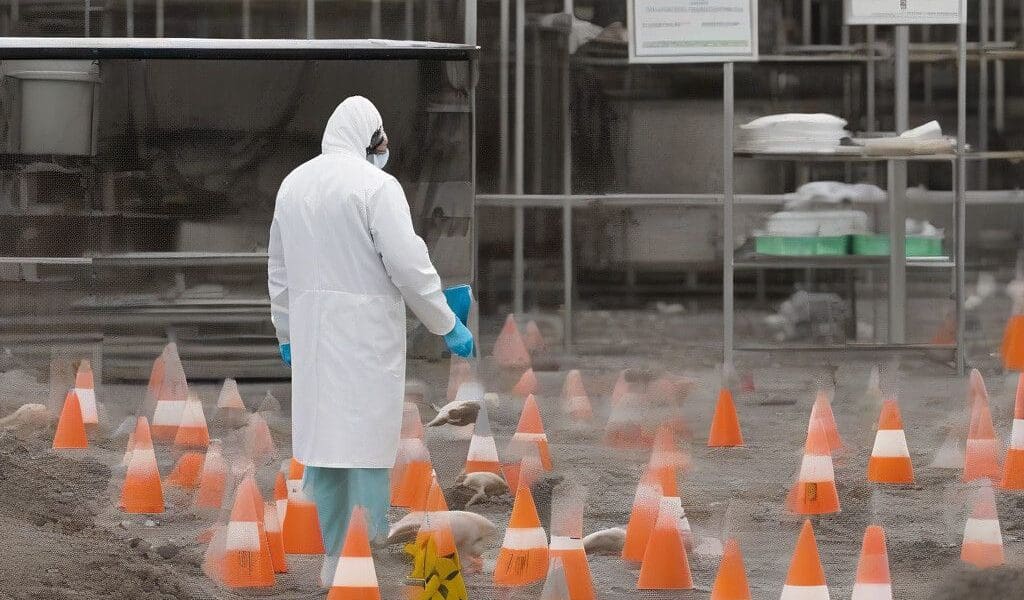In a significant move following a devastating food safety crisis, Boar’s Head has announced the indefinite closure of its Virginia production plant. This location, known for manufacturing deli meats and cheeses, was linked to Listeria monocytogenes outbreaks that resulted in at least nine fatalities and numerous hospitalizations across 18 states. Such alarming figures underline the severe consequences of foodborne illnesses, highlighting the critical nature of food safety in the industry.
The closure, effective immediately, was addressed in a recent statement on the company’s website. Boar’s Head expressed deep regret over the impact the tainted Strassburger Brand Liverwurst had on affected families. “We understand the gravity of this situation and the profound impact it has had on affected families. Comprehensive measures are being implemented to prevent such an incident from happening again,” the company stated. This commitment to safety is crucial in rebuilding consumer confidence, which has been heavily shaken by the incident.
An extensive investigation pinpointed the contamination to a specific production process used exclusively at the Jarratt, Virginia facility. Given the circumstances, Boar’s Head has made the difficult decision to permanently cease the production of liverwurst, recognizing the potential health risks associated with the product. As of late July 2024, operations at this site had already been suspended, signaling the company’s cautious approach in dealing with the crisis.
The closure poses a significant challenge not only to the company itself but also to the hundreds of employees reliant on this plant for their livelihoods. Boar’s Head leaders acknowledged this painful reality in their statement: “We do not take lightly our responsibility as one of the area’s largest employers. But, under these circumstances, we feel that a plant closure is the most prudent course.” The company has committed to assisting its employees with the transition, an essential step in demonstrating corporate responsibility amidst adversity.
In a proactive response to the crisis, Boar’s Head is not only closing the plant but also enhancing its food safety protocols. The company announced the hiring of a new chief food safety and quality assurance officer who will report directly to the president. This position is crucial for ensuring that safety standards are upheld and continuously improved. Additionally, a dedicated food safety council is in the works, comprising renowned industry experts including Dr. David Acheson and Frank Yiannas, former Deputy Commissioner for Food Policy & Response at the U.S. Food and Drug Administration (FDA). This strategic move illustrates a commitment to transparency and accountability, aimed at regaining public trust.
Moreover, the Listeria outbreak’s repercussions extend beyond liverwurst, prompting Boar’s Head to issue a broader recall affecting several products manufactured in the Jarratt facility, including bologna, smoked hams, and select pre-packaged sausages. Such sweeping measures are crucial when dealing with food safety incidents, as they demonstrate the company’s dedication to protecting consumer health.
The ripple effects of this incident pose a broader question: how can businesses in the food production sector elevate their safety protocols to prevent such crises? Lessons learned from Boar’s Head’s situation should serve as a wake-up call for the entire industry. Implementing robust testing systems, ensuring traceability, and fostering a culture of transparency can go a long way in enhancing food safety.
As consumers increasingly prioritize health and safety in their purchasing decisions, companies must recognize that trust is hard-earned and easily lost. Transparency about product sourcing, production methods, and safety measures not only protects consumers but also fortifies the company’s reputation. Proactive communication, particularly during times of crisis, can mitigate potential backlash and loss of consumer confidence.
In conclusion, Boar’s Head’s decision to close its Virginia plant marks a critical moment in the ongoing dialogue about food safety in the United States. While the company faces significant challenges ahead, its commitment to implementing stringent safety measures and supporting affected employees reflects a step toward rebuilding its reputation. For both companies and consumers, the Listeria outbreak underlines the importance of vigilance within the food supply chain – not just for compliance, but for the health and safety of everyone involved.












